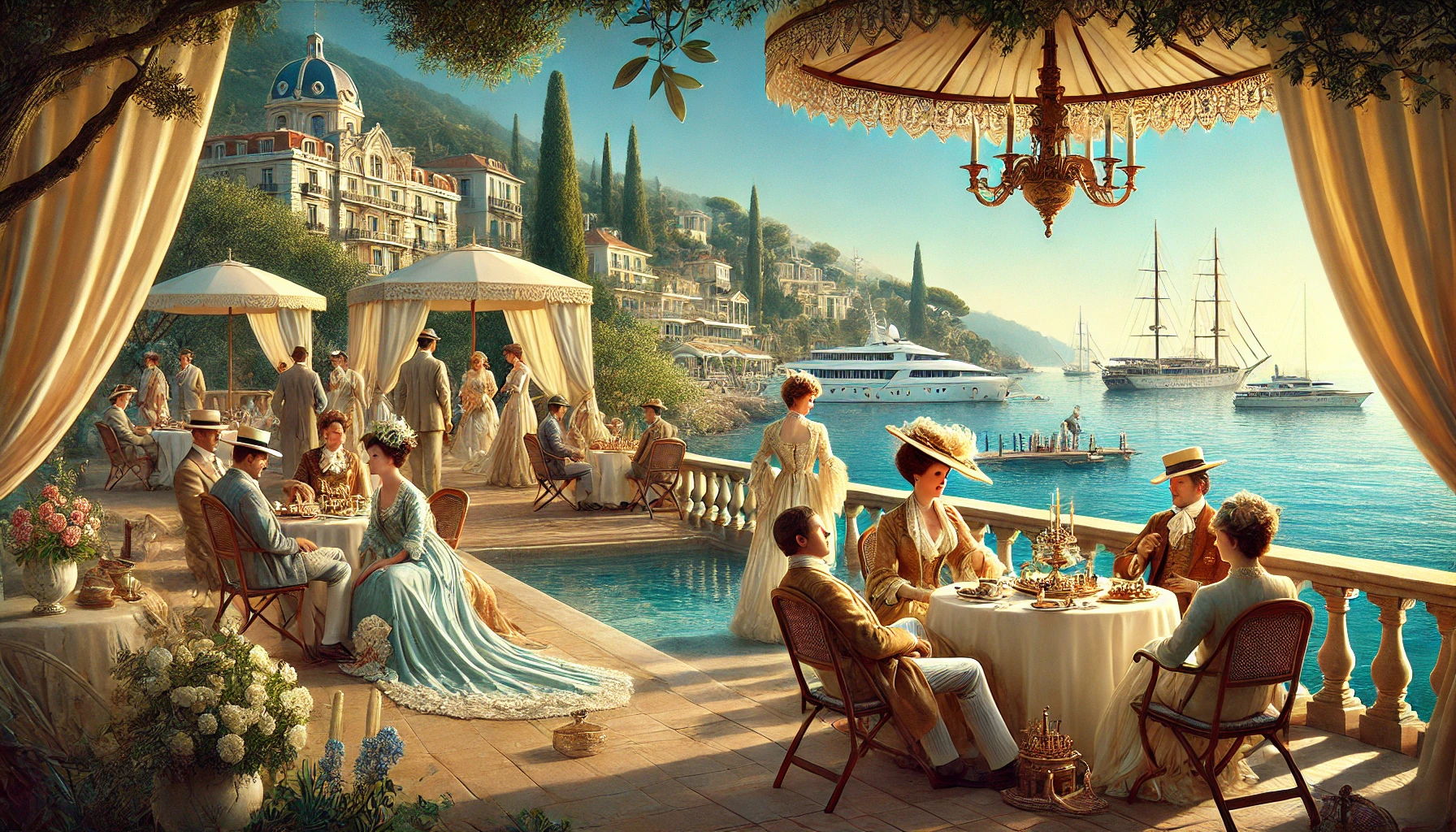Chapter 17 — Royalty At Play
byChapter 17 – Royalty At Play invites readers into the curious world of European monarchs vacationing along the sunlit Riviera, a stretch of coastline that offers both indulgence and escape. Royals, once bound tightly to the rituals and responsibilities of court, arrive here seeking refuge from public expectation. Drawn by the sea and the promise of anonymity, kings and queens mingle with high society in places like Cannes, Mentone, and Monte Carlo—not to renounce their thrones, but to shed their titles for a season. What makes this even more compelling is the irony: these sovereigns, symbols of power and tradition, flock to a region known for its republican sentiment. Their presence, though casual, transforms local scenes into spectacles. While they claim to seek solitude, their very existence pulls attention and crowds, showing that royal fame can rarely be paused, only rebranded.
Chapter 17 – Royalty At Play blends humorous detail with historical depth as it recounts key moments that rooted the Riviera in aristocratic allure. Victor Emmanuel II’s surrender of Savoy and Nice to France, a decision fraught with national consequences, inadvertently added prestige to the region. Later, Russian royalty followed, including Empress Marie Feodorovna, who brought her ailing son to the coast in search of Mediterranean healing. These instances reveal that the Riviera’s appeal to monarchs is not purely leisure-driven—it’s tied to personal stakes, health, and diplomacy. Over the years, this coastal stretch evolved into an informal stage where royals could exercise choice rather than duty. Their temporary removal from political affairs made the Riviera a curious experiment in soft power, where status was signaled not through crowns, but through discretion. Even in repose, royalty managed to influence the spaces they occupied.
Anecdotes of royals in casual situations populate the chapter, creating vivid, often satirical portraits of a class attempting to live ordinarily in extraordinary skins. The Queen of England is spotted seated in a donkey chair, a modest and somewhat comical departure from regal posture. Meanwhile, the Prince of Wales, future Edward VII, is seen enjoying Monte Carlo’s vibrant nightlife with a fondness that seems habitual rather than scandalous. The author notes, not without wit, how aging has softened the prince’s appearance, but not his appetite for pleasure. These moments humanize royal figures without dismissing the contradiction they embody—privileged enough to escape, yet never fully free from observation. Their leisure is both genuine and performative, revealing the burden of always being watched, even when at play.
Chapter 17 – Royalty At Play also explores the evolving relationship between public perception and aristocratic behavior. Events like the yacht races in Cannes and the Battle of Flowers showcase royals not as inaccessible rulers but as active participants in society’s grand masquerade. Yet the frivolity also raises concerns. As royalty becomes synonymous with entertainment rather than leadership, the long-term relevance of monarchies comes into question. The chapter doesn’t condemn their leisure—it questions its sustainability. If monarchs are to retain public affection, can they afford to be seen only in moments of extravagance? The idea of leisure becomes political, especially when set against the growing expectations for transparency, productivity, and contribution in the modern era.
Perhaps the most thought-provoking section is the portrayal of the Prince of Monaco, who has embraced a role beyond inherited privilege. Instead of lounging endlessly, he’s invested in the principality’s hospitality sector, aligning with the Riviera’s broader transformation into a luxury destination. This shift suggests a path forward: a model of royalty that contributes to national identity through work, not just ceremonial presence. The prince becomes a case study in adaptation, showing that engagement and evolution may be key to preserving the dignity of royal life. Rather than simply representing history, monarchs can participate in shaping it. In doing so, they remain relevant in societies where traditional roles are increasingly questioned.
Chapter 17 – Royalty At Play ultimately reflects on the contradiction of royal escape. Even in leisure, they cannot escape symbolism; their presence always suggests more than vacation. The chapter encourages readers to consider the delicate line between retreat and relevance, privilege and performance. As modern societies grow more egalitarian and media exposure more relentless, the very notion of royalty must adapt or fade. The Riviera, once an accidental refuge, becomes a metaphor for this balance—a place where tradition meets transformation. Here, monarchs are neither entirely royal nor fully private, existing in a space where indulgence must justify its existence through either charm or contribution.


